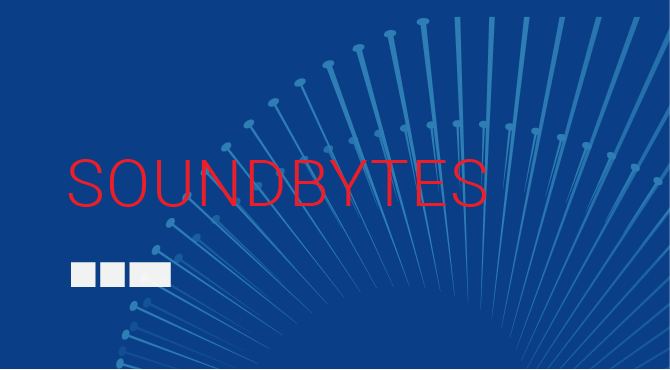5 minutes with Winston Quek, CEO SBI Digital Markets

Q&A
1. In a nutshell, what’s the vision for SBI Digital Markets, and how much closer did 2022 bring us to that vision being realized?
Our vision is for SBI Digital Markets to be the premier end-to-end digital asset solutions platform for security token offerings – covering a range of both private and public debt raising options across origination syndication and distribution. At the heart of our company, we’re using blockchain and DLT (distributed ledger technology) to streamline our operations and product offering for efficiencies, and through tokenization we are able to deliver fresh range of products that have possibly been less accessible, to maybe a hitherto hidden investor pool.
The most significant step in 2022, towards this goal was obviously being awarded our Capital Markets Services License by the Monetary Authority of Singapore, enabling us to conducting regulated activities across advising on corporate finance, dealing in capital markets products, and providing custodial services. We partnered with Securitize for platform technology, and leveraged Fireblocks for digital asset custody. We’ve been ramping up our talent pool, as we continue our recruitment and hiring spree. And now we greatly look forward to the launch of our platform in 2023.
2. Given the pace at which technology is being embraced in many other sectors, why does it feel that ‘pivoting’ is a relatively slower process for institutional finance?
The reality is that financial markets, for the last five or six decades, have not done anything differently in terms of its processing. Internal systems are entrenched, costly and largely cumbersome. Technology is perhaps the most significant way to change this, which will only happen when adoption and awareness reaches critical mass – I don’t feel that we are that critical point yet but it is escalating.
One of the areas that I think requires a lot more push is on the Buy side, it’s perhaps the last key that we need to unlock this whole puzzle. On the Sell side, there are solutions for multiple problems, but the Buy side is still comfortable with the status quo. For example bonds can currently take two to five days to settle – but it is now being proven that via technology it can be settled in t + 0. Just as we moved from flip-phones to smartphones, from film cameras to SD cards, such is the same paradigm shift that I believe is going to happen in finance.
3. How do you foresee technology impacting the way that human capital/talent is employed within the financial markets sector?
My vision for financial markets is to be able to use blockchain tokenization and digital custody to basically free up capital that is presently used for settlement, to free up headcount that is currently used for mid- and back-office processing. Much of this bureaucracy is mundane and boring, people could be doing far more interesting things – in jobs that have yet to be created. There will far be more interesting jobs than currently trying to key in payment codes and separating triplicate documents, all that can be automated to free up talent. People will be interacting with clients, generating ideas, and working on the programming side. The Singapore government is actively trying to protect and equip its workforce, to re-tool and re-skill people, but you can’t expect these things to be done in a year, there’s a major ongoing effort, we’ll see its rewards in a few years’ time.
4. How important is education around digital assets and the next generation of finance?
Education about the future of finance is crucial, and it’s not just the government’s job – it’s everyone’s responsibility. There’s a lot of misconception in the market, plus a certain amount of anxiety caused by various debacles. Part of the SBI Digital Markets ethos is to go out there and share the right message about transformation. We want to be able to help clients understand – everything from the benefits of blockchain, all the way down to digital assets, and digital wallets and so forth. As part of our corporate culture we must continue to enhance and keep abreast of all the changes, so internally as well as externally and indeed personally, we can’t expect to grow in this industry using traditional mindsets.
5. Do we foresee more collaborations ahead for 2023?
Apart from our technology partners, our parent company SBI Digital Asset Holdings collaborated with industry partners DBS Bank and J.P. Morgan on Project Guardian in 2022 – the industry-first successful live trade pilot for digital asset and decentralised finance, that was led by the Monetary Authority of Singapore (MAS). The broad learnings were then shared in the whitepaper ‘Institutional DeFi.The-Next-Generation-of-Finance?’, jointly-authored with our co-participants in the pilot, and Oliver Wyman Forum.
In 2023, we are collaborating with UBS and DBS to execute a cross-border pilot across Japan, Switzerland and Singapore in a repurchasing agreement (repo) with natively issued digital bonds. Furthermore, Japan Financial Services Agency (JFSA) is participating as the first overseas regulator to join the project as an observer.
Collaborating is in SBI DM’s DNA, the core value system of our company is that we do not try to profess to being the be-all and end-all of digital assets. We’re always open to collaborations and partnerships – learning together, moving forward together. We understand that this is a new game and we can only influence change together collectively. In this spirit of moving forward together, there are plenty of seats on the bus so the more friends the better.
